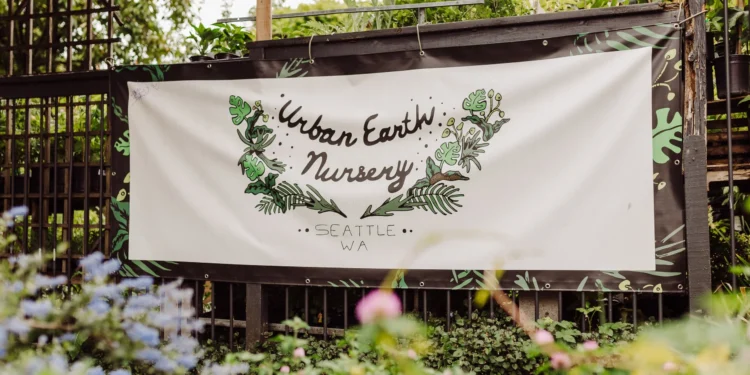Urban Earth Nursery and Garden Service will close its doors November 1 after nearly 30 years serving Seattle gardeners, as rising commercial rents and redevelopment plans force the beloved Fremont business to shutter.
A developer plans to construct an eight-story apartment building with 130 units on the nursery’s current site. The landlord determined there is insufficient space to accommodate both the nursery operations and construction equipment during the building process.
Co-owner Tan Gleason cited prohibitive rental costs as a primary factor in the closure decision. “While I would love to reopen, the state of rent for retail in the city is roughly two to three times what we can afford,” Gleason explained in an Instagram video announcement.
The nursery’s staff received notice they will be unemployed after October 31, with the business required to vacate the premises by year’s end. Urban Earth has provided plant advice and gardening inspiration to Seattle residents since opening in 1997.
The shop became a hidden gem in the Fremont neighborhood, often discovered by chance visitors who later became regular customers. Wayne Sagawa of Woodinville described how he and his family found the nursery: “Yeah, we were having dinner or something around here, and we just kind of came walking around.”
Customer Jodi Sagawa expressed disappointment about losing the neighborhood resource. “It’s just so cute to get ideas and get inspired. Sad to see this go,” she said.
Urban Earth plans to hold a major clearance sale during October, with specific dates to be announced through the business’s social media channels. The sale will provide customers final opportunities to purchase plants and gardening supplies before the permanent closure.
The closure reflects broader challenges facing independent retail businesses in Seattle, where commercial rents have increased significantly as developers seek to maximize property values through higher-density residential construction.
Urban Earth’s closure eliminates one of Fremont’s longstanding local businesses, continuing a trend of neighborhood retail displacement due to redevelopment pressures throughout Seattle’s urban villages.
The eight-story apartment building represents typical density increases allowed under Seattle’s zoning changes designed to address housing shortages, though these developments often displace existing commercial tenants unable to afford higher rents.







